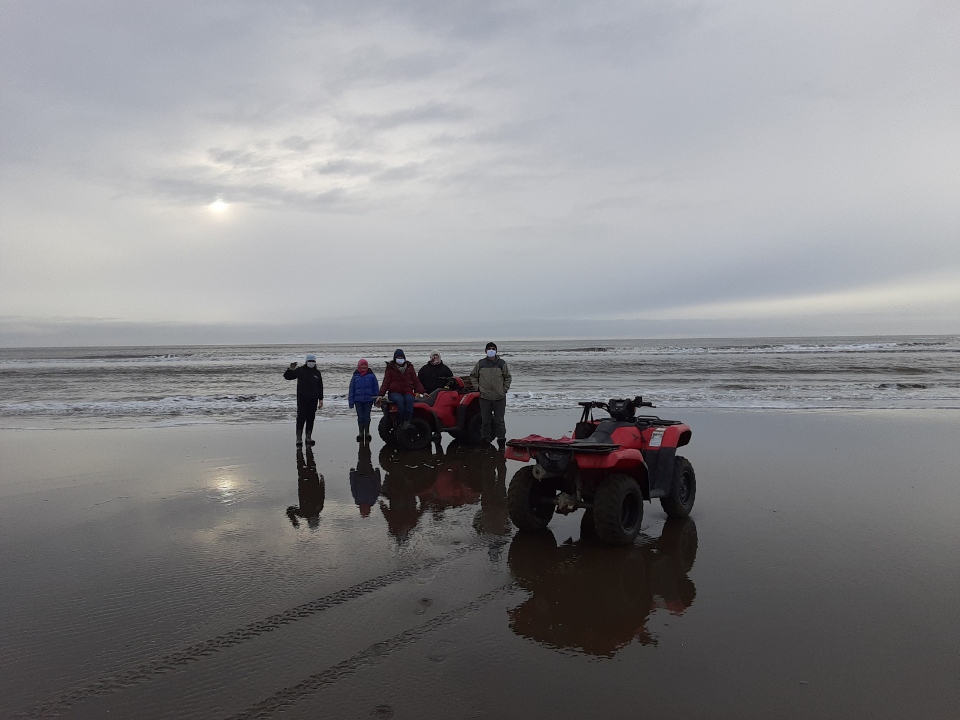CECI Cultural Curriculum Introduced in Hooper Bay
New Hooper Bay Charter School Adopts Cultural Program
Storyknife, November/December 2020 edition

Hooper Bay Charter School began as an idea that would bring together aspects of science—present in the village—with the Yup’ik culture. The school adopted Yuuyaraq [YUU-yah-uk], meaning the ‘Yup’ik way of being,’ a curriculum based on traditional values. Hooper Bay Charter School opened this August to 46 students—currently operating virtually due to COVID-19.
Hooper Bay Charter School, a charter school in the Lower Yukon School District, utilizes a constructivist model of learning.
“We want kids to experience what they’re learning and not just read it out of a textbook,” says Jamie Wollman, Hooper Bay Charter School Principal. “We want kids to look at ideas, pick out the parts they’re interested in, and become stewards of their own learning.”
The teachers act as the facilitator of learning and the students drive their education. Educational standards exist within the model, but staff guide students to find age-appropriate questions and solutions. Hooper Bay Charter School’s current theme is water.
Yuuyaraq is a culturally relevant curriculum developed by Calista Education and Culture, Inc. (CECI) and the Lower Kuskokwim School District, funded by a U.S. Department of Education grant.
“There’s a teaching for every stage, from the time you’re an infant to the time you’re an Elder,” says Mark John, CECI Cultural Advisor.
Yuuyaraq is considered a set of well-defined cultural values, rules and roles “to live a full and fruitful life without doing harm to oneself, others and nature with all it brings.”
The water theme fits Yuuyaraq because much of Yup’ik culture is based around water.
“We live near rivers, lakes and ponds. We hunt from the ocean. The stories relate to the science and acts as a connection for students to understand the concepts on both a scientific and cultural level,” says Renee Green, Hooper Bay Charter School Teacher.
Renee says she grew up cutting fish and subsistence learning through her family but could not easily relate to the lessons in her school textbooks when she was a student.
“We want kids to look at ideas, pick out the parts they’re interested in, and become stewards of their own learning.” – Jamie Wollman, Hooper Bay Charter School Principal
“The Yuuyaraq lessons are great for the students,” Renee says. “It encourages students to participate because it’s more about them and their culture.”
Another main aspect to connecting through culture is language. Water in Yup’ik is meq.
One story in the Yuuyaraq curriculum featured Nukalpiaq [Nu-GUTH-bak], meaning a successful hunter and good provider in Yup’ik. Renee is surprised that only a few students knew the meaning and importance in Yuuyaraq teachings.
“Over time, our students have been losing the language,” says Renee. “With Yup’ik being a part of this I hope students will be able to regain some of the important words that I feel they should know.”
The next theme for Hooper Bay Charter School is hydroponics, as teachers and administrators look to connect their students to both their Native and western roots.
“These students are going to be the leaders of tomorrow, and they may leave the village of Hooper Bay,” says Jamie. “To connect the everyday world around them, and find a better understanding, we need to make them good stewards of their own learning.”